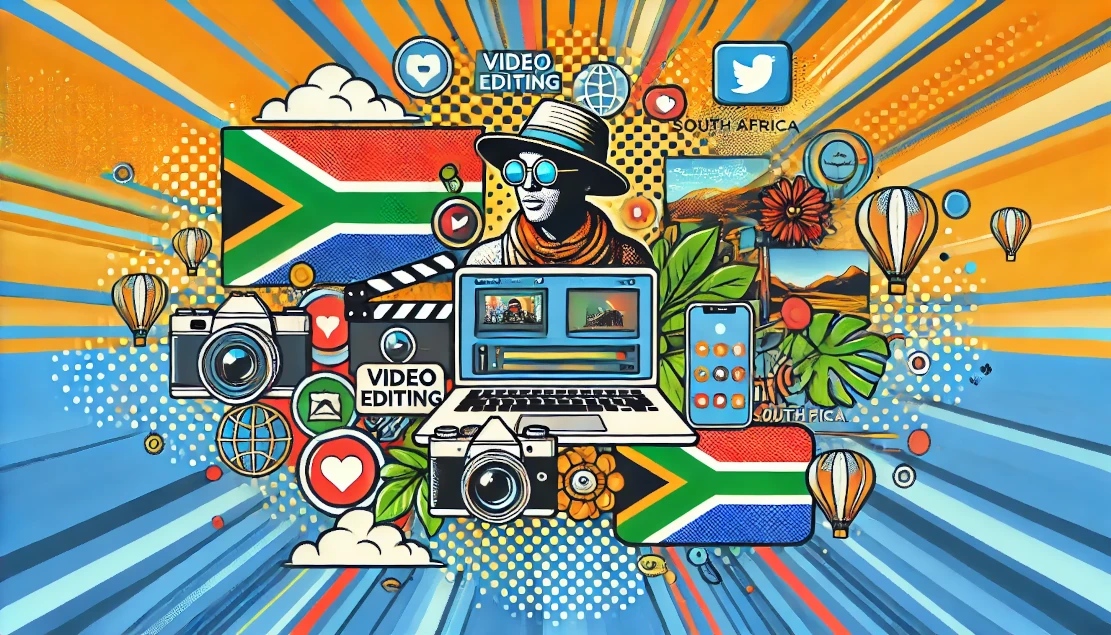The desire to become a content creator is driven by the pursuit of independence and creative freedom. Many people feel constrained by traditional jobs and are drawn to the idea of working for themselves, setting their own hours, and choosing projects that align with their personal interests. Content creation offers an escape from the nine-to-five routine, providing an opportunity to build something unique while exploring passions in areas like travel, fashion, gaming, or lifestyle. The flexibility to work from anywhere, whether it’s a beachfront café or a home studio, adds to the appeal, especially for those seeking a digital nomad lifestyle.
Another major motivation is the financial potential that content creation can offer. Platforms like YouTube, Instagram, TikTok, and personal blogs provide multiple income streams, from ad revenue to brand deals and affiliate marketing. As audiences grow, so do the opportunities to monetize through sponsored content, merchandise, and paid partnerships. The rise of micro-influencers has made it clear that even creators with smaller, engaged audiences can carve out profitable niches. For many, the prospect of earning money by doing what they love – whether it’s reviewing products, sharing travel tips, or teaching skills – feels far more rewarding than climbing the corporate ladder.
A desire for community and connection also plays a significant role. Content creation allows people to build and engage with communities that share their interests and values. This sense of belonging and influence can be deeply fulfilling, as creators often become trusted voices and thought leaders within their niche. In a time when online interactions shape much of our social lives, having a platform to express ideas and interact with a global audience is both empowering and validating. Many creators find purpose in sparking conversations, educating others, or simply making people laugh, creating a sense of impact that extends beyond personal satisfaction.
What Does a Content Creator Do?
A content creator’s job is to make and share content that speaks to a specific audience. This could be through written articles, engaging videos, captivating images, or even podcasts. The goal is to connect with people, build a community, and grow your reach over time. Influencers fall under this umbrella, but not all content creators need to focus on brand deals or lifestyle posts. Some focus purely on entertainment, education, or advocacy.
Content creators are often measured by how engaged their audience is. It’s not just about numbers – it’s about how much people interact with your posts and how loyal your following becomes. Successful creators are authentic and consistent, which helps them stand out in a crowded digital space.
How to Become a Content Creator
Becoming a content creator isn’t rocket science, but it does take effort and consistency. The first step is figuring out what interests you and where your strengths lie. Pick a niche or topic you enjoy – it could be fashion, gaming, food, or local culture. Passion is what keeps you going when the views aren’t pouring in.
Next, choose the right platform for your content. YouTube is great for long-form videos, TikTok for short and catchy clips, and Instagram if you love photography or reels. If writing is your thing, blogging still holds weight, and podcasts are booming for those who prefer to speak their minds. The platform you choose shapes the kind of content you’ll produce, so think about where your audience hangs out.
Planning your content ahead of time helps maintain consistency. Whether it’s a loose calendar or a structured posting schedule, having a plan keeps you organized and ensures your audience knows when to expect new material. The more consistent you are, the faster you’ll grow.
You don’t need top-tier gear to start. Many successful content creators began with just a smartphone. Over time, investing in a decent camera, microphone, and some editing software can elevate your production quality, but what matters most is your creativity and ability to tell a story.
Content Creation in South Africa
Creating content in South Africa comes with its own unique opportunities and challenges. South Africans love authenticity, humor, and content that reflects real-life experiences. Local culture, events, and trends often dominate the online space, and tapping into this can make your content relatable and shareable.
Highlighting South African traditions, food, and daily life can set you apart from international creators. People love seeing their own culture represented, and it creates a sense of community. Don’t be afraid to showcase the small, everyday things – they often resonate the most.
Engaging with local brands and collaborating with other South African creators can help grow your audience faster. Partnerships and cross-promotions introduce you to new followers and show that you’re plugged into the community. Additionally, staying aware of local trends and viral moments can help your content stay relevant.
Making Money as a Content Creator
Monetizing your content doesn’t happen overnight, but with time, there are several ways to earn. Sponsored posts and brand collaborations are some of the most common income streams. Brands are always looking for creators who align with their values and can introduce products to a loyal audience.
YouTube offers ad revenue, but you’ll need to hit certain milestones first, like 1,000 subscribers and 4,000 watch hours. Affiliate marketing is another option, where you promote products and earn a commission for every sale made through your links. Some creators also sell merchandise or offer services like coaching or personalized content.
In South Africa, the average content creator’s income varies. Some creators earn a modest amount, while those with larger followings can make significant money through sponsorships and ad revenue. The more niche and engaged your audience is, the more attractive you become to brands.
Can You Be a Content Creator Without Experience?
Absolutely. Most content creators start with zero experience. The best way to learn is by doing. Start small – post a video, write a blog, or snap some photos. Experiment with different styles and formats until you find what works. You’ll get better over time, and as you improve, your audience will grow with you.
Free tools are everywhere. Canva for design, CapCut for video editing, and even basic phone apps can get you started. Don’t wait for the perfect moment – just start creating and refine as you go.
International Content Creators Coming to South Africa
Cape Town is attracting more content creators and digital nomads, drawn by many factors of the region, lower living costs, and professional production services. Many of these creators hire local companies for video shoots, photography, and editing to produce high-quality content for their channels. The city’s mix of urban and natural scenery makes it an ideal location for lifestyle, travel, and fashion content. With many of these digital nomads earning in foreign currencies, they can afford to outsource production at rates that are cheaper than in their home countries. This has boosted Cape Town’s creative industry, providing more work for local production teams. However, it’s also contributing to rising living costs, particularly in areas popular with tourists and remote workers.
The technological landscape makes content creation more accessible than ever. With nothing more than a smartphone and an internet connection, aspiring creators can reach audiences across the world. Social media platforms are designed to amplify unique voices, and algorithms reward originality and consistency. The low barrier to entry, combined with the chance to constantly learn new skills – from video editing to marketing – keeps the process engaging and dynamic. For those who crave continuous growth and the excitement of building something from scratch, content creation offers a fulfilling, ever-evolving career path that feels as much like play as it does work.
Being a content creator in South Africa is about tapping into what you love, sharing it consistently, and building a community around it. It takes patience and creativity, but with dedication, it can turn into a full-time gig. The key is to stay authentic, keep learning, and enjoy the process – the rest will follow.

